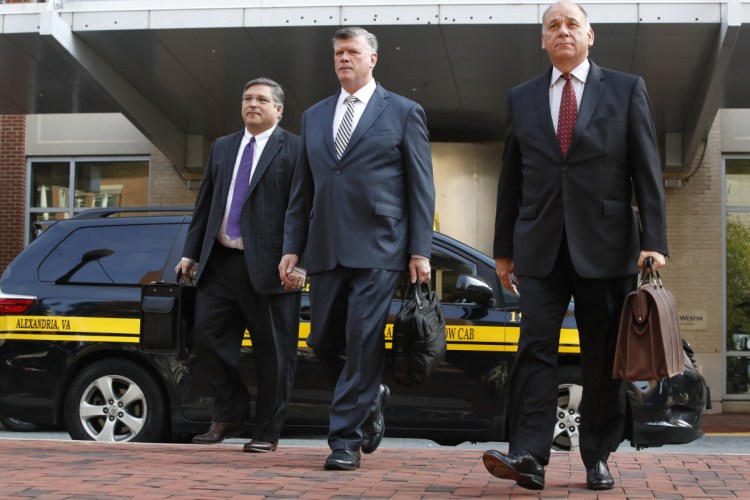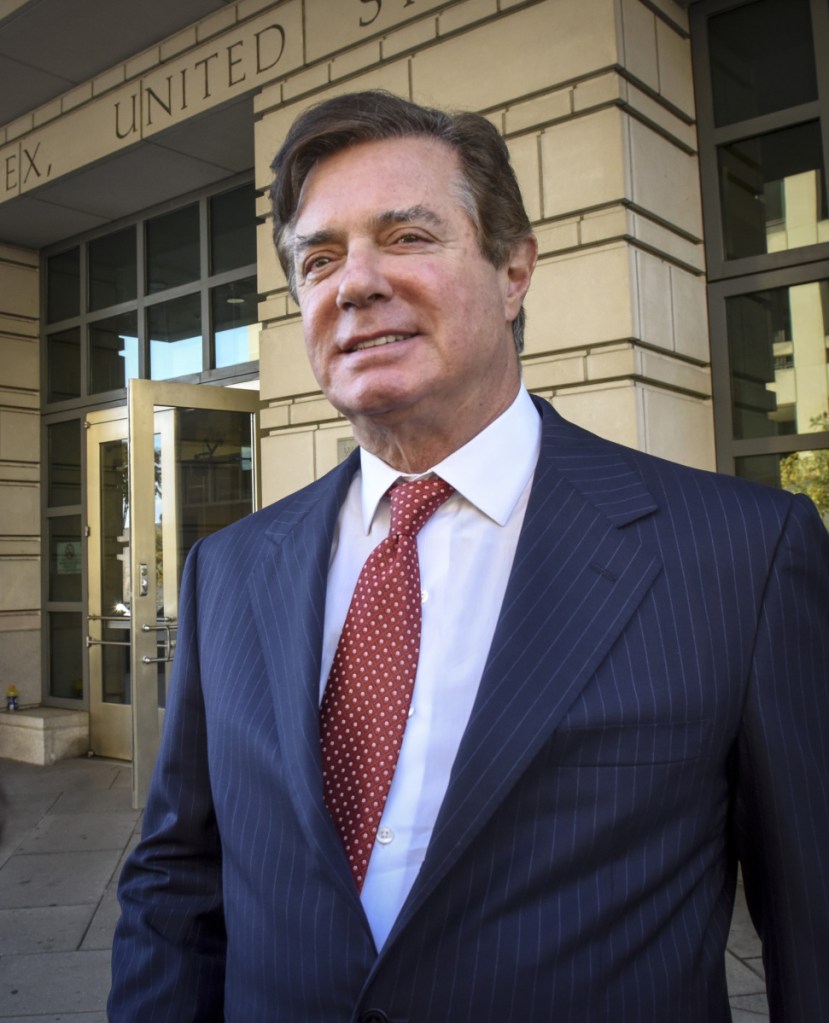ALEXANDRIA, Va. — Jurors weighing the fate of President Trump’s former campaign chairman Paul Manafort ended its first day of deliberations Thursday with a set of questions for the judge, asking for further explanation of legal points the defense made in closing arguments.
Just before 4:50 p.m., there was a knock at one of the doors to U.S. District Judge T.S. Ellis’ courtroom, behind which jurors are deliberating. The court security officer emerged minutes later with a note.
Jurors had four questions, some of which centered around defense arguments made by Manafort’s lawyers.
Manafort faces 18 tax and bank fraud charges. Prosecutors say he hid millions of dollars from the IRS in overseas bank accounts, and then lied to banks to obtain multimillion-dollar loans.
The jury’s deliberations began just before 10 a.m. Thursday. They are expected to resume Friday at 9:30 a.m.
The jurors’ questions suggest they are quickly diving into the weeds of the sometimes complex tax laws at issue in the case.
First, jurors asked if someone was required to file a form called an FBAR – which is required of people with foreign bank accounts containing more than $10,000 – if they owned less than 50 percent of such an account and did not have signature authority but did have the ability to direct disbursement.
At trial, Manafort’s lawyers suggested their client might have believed he did not have to file such forms, because the companies in question were set up under his consulting firm. After 2011, he shared ownership of the firm equally with his wife. In response, the judge read to them again the legal instructions he had provided on that point Wednesday.
Second, jurors asked if the judge could define “shelf company” and the filing requirements related to income. Witnesses testified at Manafort’s trial that he used so-called shelf companies – companies previously created by a lawyer in Cyprus that could be used to control the bank accounts in question – in order to move Manafort’s money. To that question, the judge said the jury would have to rely on their memory of the evidence presented at trial.
Third, they asked if the judge could “redefine reasonable doubt.” Jurors sometimes struggle with what constitutes a reasonable doubt of someone’s guilt, versus an unreasonable doubt. The judge told them reasonable doubt “is a doubt based on reason,” but added: “The government is not required to prove guilt beyond all possible doubt.”
Defense attorneys emphasized in their closing argument that it’s not enough to believe a defendant is “likely” guilty or even “highly likely” guilty, using a thermometer chart to make the point.
Fourth, the jurors asked if they could have an updated exhibit list, connecting each piece of evidence to the corresponding charge in the indictment. The judge said they would have to rely on their collective memory to link exhibits to specific charges.
Outside the courtroom, defense attorney Kevin Downing said that it was “overall, a very good day for Mr. Manafort,” and he was heartened by the jury’s questions.
“I think it’s all a good sign, yes,” he said.
The Washington Post’s Tom Jackman contributed to this report.
Send questions/comments to the editors.



